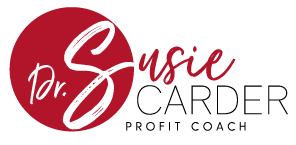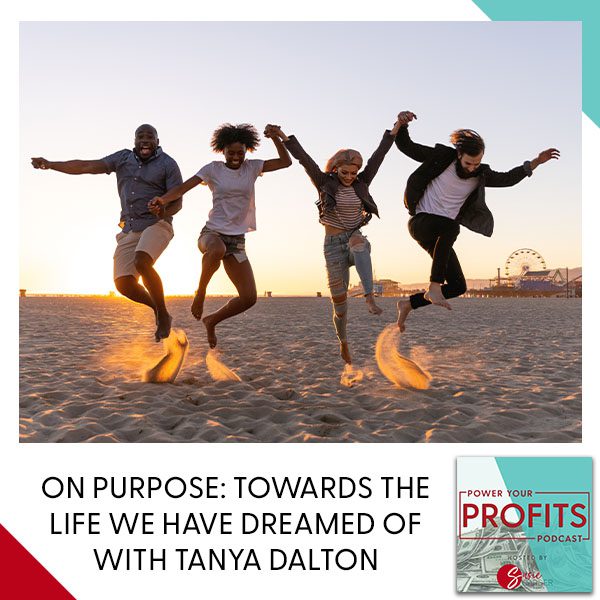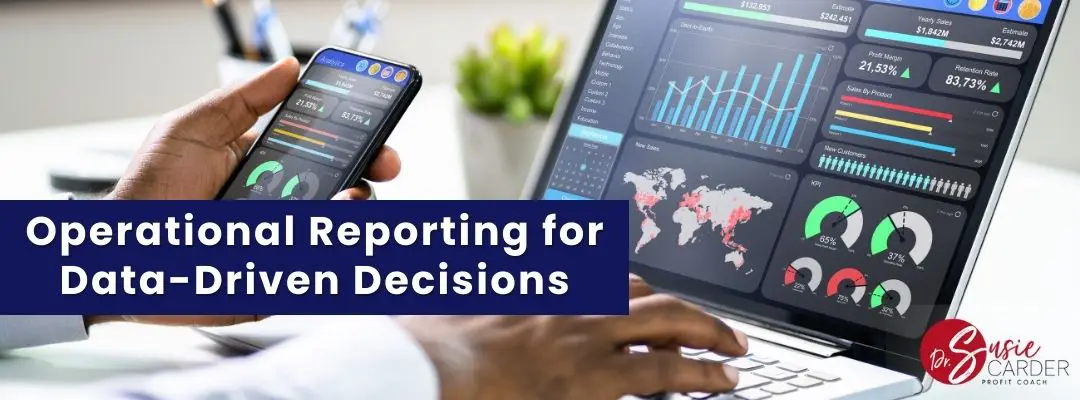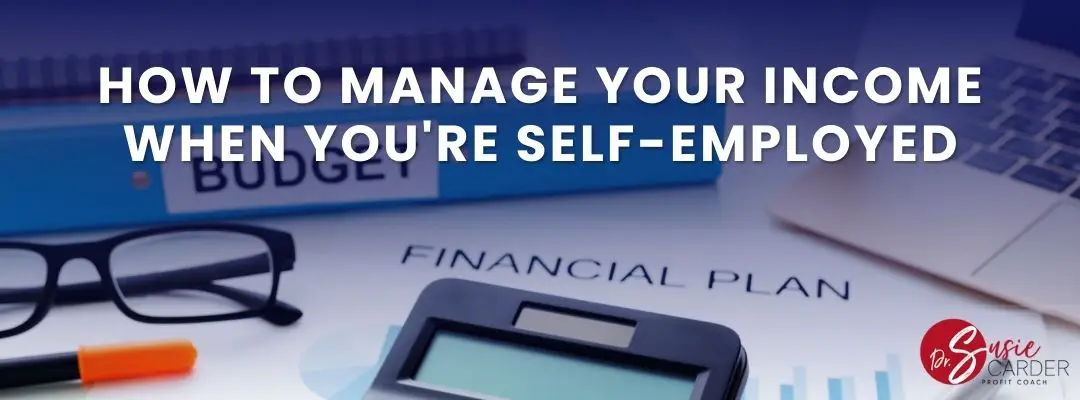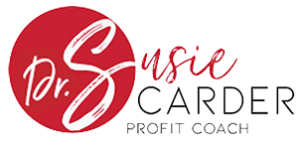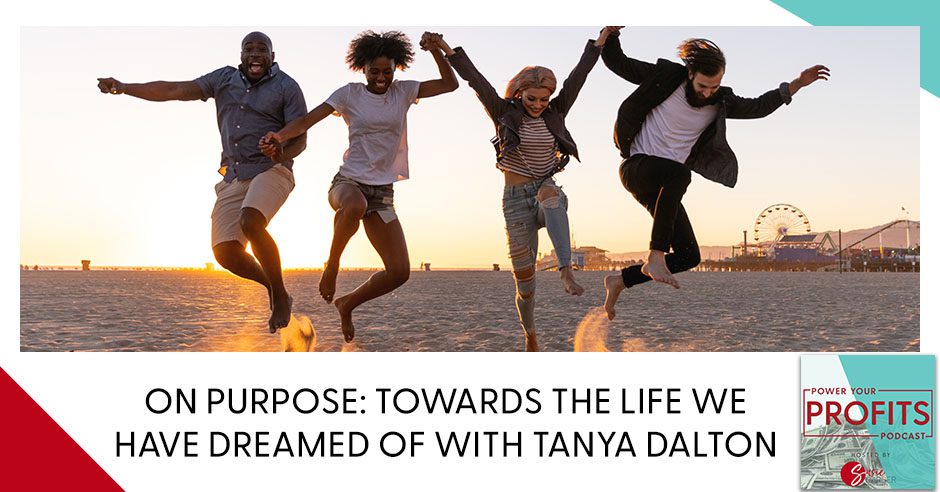
Have you been living your life trying to achieve one goal after another? Does it feel unending, like you are just constantly running without a destination? Today’s guest helps you realign your goals to know where you are headed. Susie Carder is joined by best-selling author, speaker, and nationally recognized productivity expert Tanya Dalton. Bringing her highly anticipated second book, On Purpose: The Busy Woman’s Guide to an Extraordinary Life of Meaning & Success, Tanya shares how we can tap into our purpose so we can set the right goals that will lead us to the life we have dreamed of. She then talks about goal-setting, limiting beliefs, perfectionism, and procrastination. Tune in to this episode as Tanya provides insights and inspiration to help you live an extraordinary life.
—
Watch the episode here
Listen to the podcast here
On Purpose: Towards The Life We Have Dreamed Of With Tanya Dalton
Our episode guest is Tanya Dalton. She is a best-selling author, speaker, and nationally recognized productivity expert. Tanya serves as a growth strategist for female leaders. Her highly anticipated second book, On Purpose: The Busy Woman’s Guide to an Extraordinary Life of Meaning & Success, was released for sale on October 26th, 2021. Tanya is also the Founder and CEO of inkWELL Press Productivity, a multimillion-dollar company providing tools that work as a catalyst in helping women do less while achieving maximum success.
Tanya, I’m so excited that you’re here. Everyone else gets to be a fly on the wall with you and me, so congratulations. I want to give you a big round of applause for writing the second book. I know what a love-hate relationship that is. I want to say girl to girl that I’m proud of you, ride or die. Tell us a little bit about this book and how it’s different from the last book. Tanya is a badass. I need you all to know that. She’s one of my secret weapons in my pocket. I know I say that, but I only bring my secret weapons to the show.
I adore you, Susie. I’m thrilled for us to be chatting. My first book, The Joy Of Missing Out, was about how you create structure and systems so that you can do the things you want to do in the week. It’s how you choose what you’re going to prioritize. I then felt like On Purpose, this newest book, is answering that question of, “What is it I want to do? What is it that’s truly important to me?” It was funny when I sat down to write the second book. The first book came out. It was named a Top 10 Business Book of the Year by Fortune Magazine. HarperCollins was like, “It was amazing.”
Consider the fact that I have no formal business. I don’t have an MBA. I never took a single course in college on business, and I’ve now told my kids to take courses on business without question. To have a book like that come out and get recognized for that was pretty amazing. They said, “We want you to write another book. What do you want this book to be about?” I thought, “Goal setting would be a natural progression of this. We should write a book about goals.” I sat down. In January of 2020, I wrote this whole outline of what we’re going to talk about with goals.
March of 2020 happened with the pandemic. All of a sudden, I’m homeschooling kids. I didn’t anticipate that. I’m filling out PPP paperwork. I’m worried about my team trying to figure out how to keep the business afloat and all those other things. The book went on the back burner. All hands are on deck with what we’re going to do with the business. That outline, that beautiful plan that I created, sat there because I couldn’t work on it. What was nice was during this pause, I started to pay attention to what other people were experiencing like, “Why am I doing the things I’m doing? Am I happy with the things I’m doing in my day? What am I here for?”
That was what a lot of people started asking during the pandemic. I thought, “Goals are not the goal. Goals are the vehicle to get you to the life you want.” It’s about living a life on purpose with a big, bright, beautiful future that you dream of. For your business, it’s the vision that you have, stepping into that visionary role. You then decide what the goals are based on that vision, working backward to decide, “These are the things I want to do.” That’s how we find more meaning in our daily lives, not just by setting arbitrary goals, achieving them, getting that momentary rush of excitement, and then, “Now what?” kind of feeling.
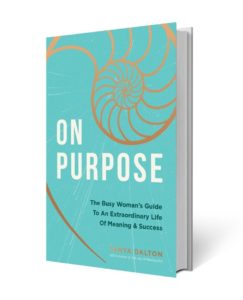
I love that. I’m in the same place of going, “Do I love this? Do I not?” It’s not having the luxury because we’re always in the drive to go, “Is this right?” As we get seasoned as entrepreneurs, everything shifts like, “What’s my new season? What’s my plan? Is this my purpose now?” That’s huge just in looking at how we live an extraordinary life and the meaning of success. I don’t think we stop as entrepreneurs enough to ask that we get in the dig in the grind and like, “I’ve got to get on the next call with the next client. I’ve got to handle this team member. I’ve got to go home and handle my kids.” It’s somewhere.
The thing is, we’re wearing the CEO of the office hat, and then we rushed home and put the CEO of the home hat on. We’re so busy rushing. We’re not thinking about, “What is it I want? Why do I want it? Is this what I want?” Our measuring stick for success is how everybody else is doing, “How do I look compared to this person? What is this person over here doing?” That’s why we ended up setting the wrong goals.
We start chasing the shiny objects because we’re not setting the right goals for us for what we really want. That comes down to redefining success for ourselves, which is something that we dive into in the book. If we don’t know what success looks like and haven’t taken the time to define it, how do we ever know when we’ve achieved it? It means we can’t stop and celebrate it because we’re so busy going to the next thing. We don’t even know we’ve achieved some success.
We’re far from being in that dig.
You’re constantly in it, which is why we’re exhausted. It’s no surprise because we’re going after one thing after the next, and then we wonder, “How did I get here? Where am I? How am I so far off the track of where I thought I wanted to be or ‘should’ be?” It is about intentionality with your personal life and your business as well. It’s creating that line of, “Here I am now. Here’s where I want to go. This is what I want to do to get there.”
We all shifted with this thing called the pandemic. There’s always a pandemic. In 2007, it was a market crash. Whatever pandemic it was, there’s going to be a recession and depression. It doesn’t matter what’s happening. If I look at what you see as a shift for your own business during this time, what’s been the biggest lesson that you’ve learned in this time?
It’s funny because you’re right. There’s always a pandemic of some sort. This is my second one to live through because I started my first business during the Great Recession when everybody was getting laid off from their jobs, and there was no money to be had. There are always going to be these obstacles that crop up for us. That’s why it’s so important to understand what it is you want instead of looking around at what everybody else is doing, spinning in circles saying, “This is what I know I want. This is what I desire.”
The path to get there may shift and change because we have things that pop up in our lives. Every time we get to an obstacle, we have a choice. We can either see that obstacle and say, “That’s a no. I can’t go on this path.” In my mind’s eye, when I picture an obstacle, I picture it like a wall. We have a choice. We can climb over the wall. We can dig underneath the wall. We can go right, left, or burn that wall to the ground. This is the thing. In these moments of difficulty, we experience what resilience looks like.
[bctt tweet=”Goals are not the goal. Goals are the vehicle to get you to the life you want.” username=””]
We think the opposite of success is a failure. It’s about building this resilience up, this understanding and belief in ourselves that when things are easy, it’s easy to have confidence because it’s like, “We’re all fat and happy. Things are great and amazing.” When things get hard, that’s when you got to dig in. This is true in all aspects of our lives, especially our business. That’s when you start peeling back the layers of the onion. You start looking at some of the things that you’ve been spending your time and money on.
Suddenly, you realize, “What’s our monthly overhead?” That was one of the things that we did during the pandemic. We stopped and took a hard look at the P&Ls and took a good look at, “What are our monthly recurring revenues? What are our monthly recurring expenses? How did it get this high?” When things are going easy, it’s easy to tack on extra things. It’s easy to do extras, and then you’re diluting everything. It is choosing to zero in on what you want to do.
That’s the biggest thing. There’s a line in The Joy Of Missing Out where I talk about we often don’t know what’s important until our ship is sinking. Suddenly, we can start throwing things overboard like, “I don’t need this. I don’t need that.” With the pandemic, everybody’s ship was sinking. Suddenly, you were like, “I don’t need to do these things. I don’t need to do this project. I don’t need to do those things.” I want us to go back to that idea. Remember when you threw all those things out of your boat? Why did you decide to put them back in? You’re just weighing your boat down. Choose to throw those other things overboard and do what matters most.
What I love is we got rid of the fat. I might get a lot of fat. You then go, “What’s my priority?” It’s like when we were kids, and our mom would say, “If I knew then what I knew now.” In your whole business career, not just the pandemic, looking back and going, “If I knew then,” the younger Tanya, what would you do differently than a seasoned Tanya would do?
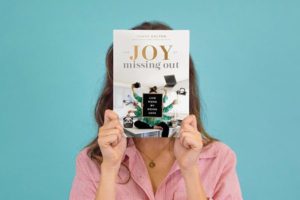
I would say I wouldn’t use the excuse that I don’t know because of what I found I did in my past, especially when it came to metrics and deciding like, “Here comes a launch. How many people do we want to get in the webinar? How many seats do we want to sell?” I would very easily fall back into, “I have no idea. I don’t know.”
We would set these super loose metrics, and then that allows you to get super loose on everything else. I would be much more laser-focused with my goal setting. One of the things I talk about in On Purpose is how you set goals so that it does have that flexibility. One of the things that are great with goal setting is setting MTO goals, Minimum, Target, and Outrageous.
The Minimum is, “If we reach this level, this is a win. This is not what we’re targeting, but this is still a win.” A Target is, “This is what we want to shoot for.” Let’s say that we’re opening up a program, and we want to get 100 people in. A hundred would be our target. Maybe 80 would be our minimum goal. The 80 are still amazing. That’s still good.
Next is an Outrageous, “What if we get 175 in?” That’s when we’re going to celebrate. That’s when we’re taking the whole team on vacation and doing something amazing in a retreat. I had realized then that setting these loose metrics and not giving myself solid targets to shoot for was working against me. That goes back to that idea of having the vision of where you want to go and backing it up to set your goals.
I love that. We do must, and then we do a goal. I love the minimum, target, and outrageous to go, “I love that outrageous.” It has you look at it differently because you’re constantly tweaking. It’s like, “What’s the combo?” I was noticing the combo in 2021 isn’t working the combo this 2022. It’s a different combination now. I’m like, “I just figured out the combination.”
If you know what it is, running a business is like being a parent. Anytime as a parent, you’re like, “Things are going well.” The kids get to a new stage, and all of a sudden, you’re like, “I don’t know what I’m doing anymore.” That’s what a business is. Your business is your other child. It’s essentially what it is. You get to a level of comfort and could potentially stay there or go down, or you can keep pushing yourself to step out of your comfort zone to grow, evolve, stay relevant, and help your customers in the best way you can.
[bctt tweet=”We often don’t know what’s important until our ship is sinking.” username=””]
That happens when we step out of comfort and go, “I don’t know what I’m doing, but that’s okay.” Do you know why? It’s because I can look backward and see all that resilience I’ve built up. I’m using that now. I’m drawing on that in these moments where I don’t know what I’m doing. It’s okay not to know what you’re doing. Everybody is fumbling and bumbling their way through life, even those people you look at who you’re like, “They have it all together.” They have moments of panic. They have moments crying in their closet. They have what we all do. All of us.
We don’t talk about it, especially in our culture, meaning women. It’s because it was a sign of weakness. You have your ride-or-die girlfriends that you can talk about it, but business-wise, you know, you get suited and booted, “This is my business face. Here’s what I’m going to talk about. Here’s what women do.” They go, “Where’s that safe place where we can take off our superhero case?”
There are even groups that I’m in, but they’re still heavily dominated by men and then women who are acting like men. I want to talk about this, but there’s no safety in talking about it. It’s finding those right mentors, coaches, and communities that say, “I need to share this.” It doesn’t mean it’s that forever. It’s just this season. Here’s this season I’m in called, “I hate my business. I want to burn it up. I want to light a match.”
This is the truth. We all have those seasons. Many women entrepreneurs spend too much time, myself included, feeling like we’re on our little private island. It’s not the fruity cocktail private island. It’s a Cast Away private island, like Tom Hanks, where you’re going crazy doing things on your own. We need to have other women around us.
When we get together with other people who have mindsets that push us, encourage us, and allow us that safe space to be able to talk about, “This was hard. This was difficult. This didn’t work at all. This was a complete failure,” there’s so much empowerment in that. It makes our stories more real and encourages other people. When we drop the facades of perfectionism and allow people in for real, that’s a powerful thing,
Sometimes it takes the universe smacking you in the face. You feel sucker-punched, and then you’re finally stripped of the perfectionism to go, “I need help.” It’s like you’re in the life raft going, “I am drowning. I need someone to send me something else besides this little life vest.”

This is the thing. We get comfortable with our own discomfort. It’s what happens. We have this amount of discomfort, and we’re like, “This is normal. This is how life is. All entrepreneurs work 80 to 100 hours a week. This is okay.” It’s not until we get more uncomfortable with our discomfort that we decide to change. It’s no different than anything else in our life. We don’t decide to change until it becomes so uncomfortable. Sometimes it takes a universe sucker punching you to be able to make that happen.
Let’s talk about limiting beliefs because that goes into play to success and success on your own terms, the way you speak about it. Let’s talk about it from a place of we all know we have them and what we do with them. We compartmentalize and put them in the basement, but that’s not necessarily dealing with it. Let’s talk about that a little bit.
It’s important to understand your limiting beliefs because success, in all areas of our life, not just in our business, is 99% mindset. It’s how you choose to think. If your mindset is working against you because you have these limiting beliefs that you’ve not acknowledged, you’re self-sabotaging. The thing is, you’re self-sabotaging, and you’re not sure why you’re not achieving success, but it’s your own things that are pulling you down. I like to tell people, “The first thing you need to do is acknowledge that they’re there to understand that you have these limiting beliefs.”
A lot of times, they’ll manifest in your body. That’s the first way you recognize them. An example for me was whenever I’d have launches, I would get these tension headaches and stomach aches, and I could write it off as not eating well or all these other things. When I stopped and started asking myself, “What are the questions? What are the thoughts? What are the words that are going through my head?” I began to realize, “I felt like I had to do all my launches on my own.” I felt that way because there was a story. I started diving in, “Why do I feel this way?”
One of the things you can do is what I call the fifth why exercise. Ask yourself why five times. The first why would be, “Why do I feel like I have to do this on my own? It’s because I had a bad experience with someone when I reached out to help, someone who I thought was on my team, and they totally turned their back on me.” Let me ask why again, “Why did they turn their back on me? When I think about it, they weren’t really on my team. The things they’re doing aren’t really aligned with the way that I want to run my business. Why do I want to run my business this way?”
You keep asking why to get those layers of the onion peeled back. You then get to the root of the problem. That’s what’s great. When you get to that root, which happens after about five of these whys, asking yourself why, you start to understand what that root is, and then you can pull it up. You can start to realize, “Okay.” It’s not as simple as saying, “Now I just need to do the opposite.” It’s, “I need to do the opposite with an action.” For me, with doing the launches, I realized people would show up for me if I asked the right people and the timing was right, but I had to clearly ask for what I wanted.
[bctt tweet=”We don’t decide to change until it becomes so uncomfortable. Sometimes, it takes a universe sucker punching you to be able to make that happen. ” username=””]
That was part of the problem. I wasn’t clearly asking for what I want. “I need help. Can you support me? Do you mind sending out an email? Could you do these things?” I was like, “I feel like they should just show up for me.” When I began to get to that limiting belief and pulled it up, I shifted that on its head. Now I know that I have that limiting belief in my past, so when it’s time for a launch or something else, I know I put that front and center. You got to ask for help. I need to clearly ask people who are in my corner to support me.
I can feel the tension in my body coming up. I asked for help, and I’m hearing myself in your story to go, “This is juicy,” to go, “The five whys is powerful just to keep digging.”
The five whys work for every situation. I’ve used it with team members when we’re getting to the root of why they’re doing certain things in their jobs. I’ve used it with my kids to get to the root of their actions. I’ve even used it for gratitude to get to the heart of what I’m truly grateful for instead of going surface-level. Those are five whys. It’s so easy. You can do it while driving your car or taking a shower. You don’t even have to write it out. Ask yourself why five times. Here’s the trick. Be honest with yourself because we’re not going to pull it and get to that route if we’re giving ourselves a little bit of fluff. That’s the hard part.
Let’s talk about that because I do this, and so many other people do. The minute we get off track, we start beating ourselves up because I’m not on track with my goal. I’m not where I want to be. It’s not happening the way I want it to happen. Part of limiting belief is what you talk about, when you talk about, you bring about. It’s a bad thing. I just go, “I suck. We’re not doing it. Woe is me.” When something smacks you hard, you’re like, “Oh my God,” especially when you’re high achieving and are used to things going your way. I know I don’t like things not going my way. It’s like, “Why is this not going my way?”
It’s like, “I want all green lights the whole way. Why is it so difficult?”
I like talking about it when I’m in it. I can talk about it when I’m out of it, but the power is when you’re in it. You go, “Tanya, please help me now.” Let’s talk about why it’s not a bad thing and what we do when we get off track to get us back on track. Part of it is the why. I love that. What else?

The thing is, you’re going to get off track. That’s human nature. Things happen in your life, so we need to have that flexibility built-in, and we need to be okay with it. The truth is it’s often the detours of life that get us to the life we want. We think we know the route A to Z, and it’s going to look exactly like this. A lot of times, you get on this detour, and you’re like, “I didn’t even know this was a possibility.” We’re on the highway going 100 miles an hour. That’s how I drive, at least. We’re going fast, doing the things we think we’re supposed to be doing, checking off all the things.
All of a sudden, we look down and are like, “I’m not on the highway. What just happened? I got off track.” When you get off track, you’re like, “This is a scenic view. I like this. I didn’t even know this was a possibility.” The first thing is, and I call this the three A’s. The first one is to Acknowledge. Acknowledge you’re off track. Don’t beat yourself up. Don’t start getting into the whole limiting belief of, “I’m a failure. Nothing ever works out for me. The universe hates me.” Acknowledge like, “I’m not quite where I want to be.” Take a deep breath and acknowledge that. We then want to do the second thing, which is Assess, “I’m off track. Do I want to go back on that highway? Do I like that highway? Do I like where I am now?”
Suddenly, this whole other opportunity ahead of me might be even better. I’ll be honest with you. Where I am now is very different than where I anticipated I would be years ago. I’m so happy this happened to me, but it was a detour getting to where I am. Do I want to get back if I do? What do I need to Adjust? That is our third A. What do I need to change and shift? What habits do I need to build to be able to get back to that road? Do I need to take that goal and burn it to the ground I had before? I like where I am, and I’m going to adjust what my goals are in moving forward.
Acknowledge, Assess, and Adjust are the three A’s. You’ll notice none of them are, “Beat yourself up. Tell yourself you’re a failure.” Writing the book was a perfect example of that. I had that whole perfect outline that I wrote in January, and it was great, but then I had to burn it to the ground because it no longer applied when I started writing the book months later after all of the things that happened. That was okay because the book I came out with is even better.
That’s a big adjust. You just pushed like, “I already did this outline and did this thing.” I don’t know how your editors let you not write the book that year. That’s a powerful woman going, “I’m sorry. I’ve got to homeschool kids. No.”
That’s what I said to them. I was like, “This is no longer going to work. Let me tell you why. This is where this train is going.” It was like, “If you want me to write the book, then this is the book I’m writing.” The thing is, there are times in your life where you have to draw that line, “This is important to me. This is something that I am willing to stand for.” There are other things in your life where it’s like, “I could take it or leave it.”
[bctt tweet=”The truth is it’s often the detours of life that get us to the life we want.” username=””]
Know what’s most important to you. What’s most important to me is if I’m writing a book, you have to love that book. You talked about that book for years and worked on that book for a year. It’s a lot. I wasn’t willing to compromise on that. I knew that the book needed to shift and that those goals were not the goal. How do I write a book where we talk about goal setting, but it’s the vehicle? How do we help people understand what their purpose is and how to decide their own goals? How do we do that? That’s the book I ended up writing, which to me, is a much better book. I’m so much happier with it.
I feel like God sent my little angel Tanya to me. It’s so great because we’re in this whole shift. We adjusted quickly to the pandemic. We went from offline to online. Now there’s this whole other thing happening in the marketplace that’s having me acknowledge, assess, and adjust. I’m adjusting, you’re pushing, and pushing to not working is making me frustrated and beating myself with a stick. I’m beating myself up and going, “This is not fun. I like it when it’s fun because then it’s easy.”
There’s an adjustment that needs to happen to bring back the fun. We get caught up in, “This is what I thought it was going to look like.” We have to make this work, and we change, shift, and try to do everything we can to make that work even if it’s not bringing us joy and pleasure and not tied to how we define success. I know for you and me both, a lot of that is how we spend our time off of work, with our family, and what we do with our wealth. All of those things are a part of it. Taking the time to acknowledge, assess, and adjust is powerful. Am I happy with where I am? How do I feel?
Especially as businesswomen, we tend to over-masculinize ourselves. We feel like we have to do it a certain way. We’re playing by old rules that were set hundreds of years ago by a bunch of men. Tap into your intuition. This is one of our greatest gifts as women and one of the things we need to recognize as women leaders. How do I feel at this moment? Do I like what I’m doing? Is it bringing me joy? If it’s not, switch it, change it, and adjust it. The beauty of doing what we do is we can make that happen.
I’m speaking for myself because people can relate when you share. I have my own little coaching call with Tanya. I have this perfect plan. My perfect plan and perfectionism of my perfect plan are not working, so I start looking at what it is. You then want to start procrastinating, you’re just pushing, or like, “I’m not creative,” because I’m trying to have perfect perfectionism, which is a delusion. It’s not even an illusion. It’s a delusion. Let’s talk about perfectionism and procrastination. I know we talked about it in the book, but let’s talk about it here because we all identify.
I’m a recovering perfectionist. It’s how I like to describe myself. When I’m slipping into my perfectionism tendencies, I have to say like, “Stop. This is not working.” Perfectionism isn’t going to work for any of us. Perfectionism leads to procrastination which leads to paralysis. That’s when we feel stuck. In the book, I talk about the fact that there are two types of a perfectionist. We have our strivers and idealists. Idealists are common in that they have this whole over-romanticized idea of what it’s going to look like.
As soon as we stray off the path, we’re like, “That’s it. I’m a failure. This always happens. I’m never able to do these things right.” We start piling on these limiting beliefs when perfectionism really doesn’t exist. As we talked about before, when we drop these facades of perfectionism, not only does that allow other women business owners in. It allows your clients and customers, your soulmate clients, especially. That’s what I call your ideal avatar. Your soulmate clients are able to see the real and authentic you. That’s what’s going to connect them to you.

What I loved about the time period we had with the pandemic is we were able to aggressively embrace imperfection because we were all flying by the seat of our pants. What if we started embracing that full time, this love of imperfection of building the plane as we’re flying the plane sometimes? It’s okay not to have it all mapped out. I’m a productivity expert here, telling you now that you don’t have to have it all mapped out. We want to know the start point where you are now. We want to know the endpoint and create some little landmarks to get you there.
Those are going to shift as we get off track, as we grow, and as shifts happen in our world, even with our families. Allowing yourself that grace to be human is important. When we tie ourselves to perfectionism, we’re not allowing ourselves to be humans. Being imperfect is one of the most beautiful things about you.
It’s the little quirks and the things that make you different. That’s what allows you to stand out in your industry. That’s what allows you to be the bright light in a crowded marketplace. Double down on those things that make you different because if you’re trying to be like everybody else, you’re never going to stand out.
This is such a perfect conversation about where we are in the world, what’s happening for us now, and what’s happening for us as a generation or as women business owners of leaving the past behind and going to the future. How do we get a play with you, Tanya? How do we get your book? It’s such a delicious conversation. You need a tribe and a community, like joining a Facebook group. You’ve got to have people who understand it.
I’m in this one women’s networking group. I feel like it’s the mean girl club. I had to let it go. I’m like, “Why am I pretending to be this way?” I didn’t feel like I could be me. I’m like, “These aren’t my people.” I’ll share my greatness, but I’ve got to be able to share that smallness that happens as well. How do people play with you? How do we get your book? Let’s talk about that.
The best place to connect with me is TanyaDalton.com. You can find links to my podcast there. You can also pause reading this blog and do a quick search. Intentional Advantage is the name of my podcast, and give it a quick follow. I’m on every platform. That’s one of the best places to get to know me and connect.
I hold events that are free events, just as a way for us to get together and build community. TanyaDalton.com is the best place. One of the most interesting things that people have said about me is that I have made the conscious decision to leave social media. I am no longer on Facebook, Instagram, and Twitter because it does not align with my definition of success and my vision of where I want my business to go.
Here’s the most interesting thing. Since I made the decision to leave social media on January 1st, 2022, my email open rate has gone to 45%. My podcast downloads have doubled, and people feel more connected to me than ever before because I have chosen to show up in fewer places but more authentically, imperfectly, and genuinely myself. TanyaDalton.com will be where you find me because I am no longer on social media.
There are so many people going, “Yeah, me too.” Thank you for being here again, Tanya. I want to say thank you for being my sister on this journey. Thank you for your authenticity and transparency. I appreciate you. If you love this episode, which I’ve loved, make sure you share it with your tribe and community because we all need to read the message. We all need to know how we live an extraordinary life. The book is On Purpose: The Busy Woman’s Guide to an Extraordinary Life of Meaning & Success. I love that we define it on our own terms. Thank you, Tanya. I appreciate you, and have a blessed day.
Thank you, Susie. I’m so grateful to you.
Important Links
- On Purpose: The Busy Woman’s Guide to an Extraordinary Life of Meaning & Success
- inkWELL Press Productivity
- The Joy Of Missing Out
- TanyaDalton.com
- Intentional Advantage
About Tanya Dalton
 Tanya Dalton is a best-selling author, speaker, and nationally recognized productivity expert. Tanya serves as a growth strategist for female leaders. Her highly anticipated second book, On Purpose: The Busy Woman’s Guide to an Extraordinary Life of Meaning and Success, was released for sale on October 26, 2021.Tanya is also the founder and CEO of inkWELL Press Productivity Co. a multi-million dollar company providing tools that work as a catalyst in helping women do less while achieving maximum success.
Tanya Dalton is a best-selling author, speaker, and nationally recognized productivity expert. Tanya serves as a growth strategist for female leaders. Her highly anticipated second book, On Purpose: The Busy Woman’s Guide to an Extraordinary Life of Meaning and Success, was released for sale on October 26, 2021.Tanya is also the founder and CEO of inkWELL Press Productivity Co. a multi-million dollar company providing tools that work as a catalyst in helping women do less while achieving maximum success.
